Next to Lyudmila Logua's name, throughout her career, the definition of the "first" was often put: the first Abkhaz professional opera singer, "the first nightingale of Abkhazia", as she was called by the people ... She sang the lead part in the first Abkhaz opera, and she also was the first to organize musical evenings in Sukhum.
Arifa Kapba
Lyudmila Logua came from the Pakuash village of the Ochamchira region, although she was born in Sukhum on December 10, 1939. Her father was recalled in the village as a respected person, his opinion was listened to. He himself was wise enough to understand the aspirations of each of his five children, to see their talents, and gave everyone an excellent education. And that is why, when Lyudmila, still quite small, began to show interest in music, she was not disturbed, but on the contrary was supported and helped.
From Tbilisi to Kiev
At first, she came to study at the Sukhum School of Music, after graduating from which she entered the Tbilisi Conservatory. As musicologist Aida Ashkharua notes, already there Lyudmila was particularly interested in the lessons of chamber singing with the composer Dmitry Shvedov, who would later play an important role in Logua’s creative biography.
From Tbilisi, from the third year of the Conservatory, Lyudmila Andreevna Logua transferred to the Kiev Conservatory. There she got into the classroom to a teacher, whom until the end of her life she considered her main teacher - the People’s Artist of Ukraine, Maria Eduardovna Donets-Tesseyr. Lyudmila Logua always kept in her Sukhum apartment the photograph of Maria Eduardovna in the most prominent and honorable place.
Having returned from Kiev, the young opera singer gave her first concert in her native Sukhum.
This is how Aida Ashkharua writes about her performance: "The first Abkhaz opera singer was born. Her lyric and coloratura soprano of a beautiful golden timbre (two and a half octaves), smooth sound in all registers captured listeners with the purity of intonations performed by the most complex coloratura arias. Possessing a beautiful scenic appearance, she conquered elegant artistry."
Homecoming
After a one-year internship at the Bolshoi Theater in Moscow, Logua worked for several years in the city of Samarkand as a leading soloist of the Samarkand Opera and Ballet Theater, under the guidance of the famous Soviet conductor Boris Khaikin. Then Lyudmila Logua returned to her native Sukhum and in 1971 became a soloist of the Abkhaz State Philharmonic.
According to musicologist Asida Tsargush, the flowering of Lyudmila Logua’s singing career took place in the seventies and eighties of the last century: she was the prima in the philharmonic society, toured extensively, gave many diverse concerts within the Republic.
The repertoire of Lyudmila Logua was mainly operatic arias: Rosina from "The Barber of Seville" by Rossini, Gilda from "Rigoletto" by Verdi, Butterfly from "Madame Butterfly" by Puccini, Martha from "The Tsar's Bride" of Rimsky-Korsakov. In the eighties on the stage of the Tbilisi Theater Logua brilliantly performed the role of Violetta in the opera "La Traviata" by Giuseppe Verdi.
Ave Maria and "Alamys"
Of particular importance in the work of Lyudmila Logua is the performances in the organ hall of the Pitsunda church, where at different times she gave concerts of church music along with such brilliant organ musicians as Sergey Dijur, Oleg Yanchenko, Alexander Fiseysky.
"Everyone remembers her landmark program "Ave Maria", where in one concert she sang this piece of music written by various authors," notes Tsargush.
In 1984, "the first Abkhaz nightingale" —that was how often Lyudmila Logua was called — was the performer of the main female role in the first Abkhaz opera "Alamys" by composer Dmitry Shvedov. It was the same Shvedov - a chamber singing teacher - with whom Lyudmila Andreevna studied in Tbilisi.
"The initiative to stage this opera belonged to conductor Lev Dzhergenia, - says Asida Tsargush. - The performance was shown to the spectator only once, because we did not have an opera house, everything happened in the Abkhaz drama theater. The capella performed as a choir, the symphony orchestra was also expanded in composition, Lev Grigoryevich gathered soloists, forced them to learn the parties, and directed them all."
In this opera, the production of which became a landmark event for Abkhaz culture, several outstanding singers, including Boris Amichba, Thomas Kokoskir, Toto Adzhapua, Vili Chakmach-ipa and some other performers, flashed with their talent.
Lyudmila Logua created in the performance an image of a young girl Nazira, who, according to musicologist Aida Ashkharua, could "love much and was ready to cross even through the traditions consecrated by centuries".
Test of war
The Patriotic War of the people of Abkhazia 1992-1993 became a special test in the life of Lyudmila Logua. The shock and turmoil she experienced during the hostilities had a detrimental effect on her health, including her voice.
"During the war she was in her native village Pakuash. It was very hard for her to go through this time, she was quite seriously ill several times, says art historian Asida Tsargush. She also took an active part in everything there, did not sit back, helped the soldiers. She cooked, washed, cleaned, fumbled in the garden. I didn’t feel sorry for myself at all ... Although it would seem that an opera diva, a beautiful woman, sleek, well-groomed. For a whole year she lived in all this, and this could not but affect her vocal qualities. When we met after the war and got to know each other closely, she was already treated a lot by the doctors, but nothing helped, in fact, the voice was lost, she could no longer sing."
After the war, Lyudmila Logua acted rarely on stage: once on the stage of the philharmonic society with pianist Ninel Bzhania, and then at the anniversary of her colleague and friend Boris Amichba, with whom they once sang triumphantly the title roles in "Alamys".
As a teacher
Having lost her voice, Lyudmila Logua retained her love for music and tried to convey this passion to music to her students. One of them was opera singer Astamur Kvitsinia. Astamur first came to the house of the singer on the recommendation of her friend, pianist Eteri Adamia, in 2000. At that time, Lyudmila Logua has already stopped teaching at the Sukhum State Music College and accepted students in her own apartment.
"I came with my father for audition to her home, recalled Kvitsinia, and I was struck by how seriously she took this. For a long time and impressively she explained to me that music is a very difficult, very responsible exercise, that it only makes sense deal with it if I am going to study music seriously and for a long time. I was even scared a little, because at that time I did not firmly understand whether I want to sing or not, I was afraid to return to her, but I nevertheless took the decision."
Lyudmila Logua has done incredibly a lot to attract talented young people to art, she worked with young singers at home, passing them tremendous experience, knowledge, skill, and did it completely selflessly. Lyudmila Andreevna was fanatically devoted to music, dedicated her whole life to it, and even often joked that she had many admirers in her youth, but she married her profession," Astamur says.
A straightforward, but very delicate, tactful and extremely demanding woman, Lyudmila Logua motherly treated her students. This is how Astamur Kvitsinia and her other student, the singer Batal Sakania, speak of her.
Exactingness, which she showed to the students, was the rule for herself too.
"Once she unsuccessfully fell down the stairs, broke her leg, could not walk, just sit, she was tormented by pain, but Lyudmila Andreevna didn’t even think about canceling her classes," Astamur recalls. - I went to her house with a synthesizer. We were still working, everything was as usual. Later, I understood her perseverance in this matter: so she was distracted from her pain and at the same time, until the last moment was engaged in what she thought she should have been doing forever - music."
Lyudmila Logua’s music salon
In the difficult post-war years, Lyudmila Logua yearned for cultural life, concerts, and musical events. She was very worried that no one seemed to care about culture. Then she conceived home music evenings completely unique to Abkhazia.
The people who lived next door to the singer knew well that once a month a musical evening was held on the third floor at the folk artist of Abkhazia. Lyudmila Andreevna set a small table at her home; guests and relatives also brought food. Musicians, creative people, politicians, friends of Lyudmila Andreevna and all those who sincerely loved art came to her.
Lyudmila Logua's performers at such home music evenings were mostly her students.
"It was something like certification for us," recalls Kvitsinia. - At these evenings both I and Batal Sakania sang, there were often other musicians, recognized masters such as singer Alisa Gitsba, pianists Alla Otyrba, Ninel Bzhania, as well as young, at that time beginners, performers, for example, violinist Mikhail Alkhazov, pianist Tamara Shanava, singer Tamara Voronova, guitarist Maxim Buslovsky, sisters Nora and Irena Okudzhava. Lyudmila Andreevna herself never sang on those evenings, she was among the spectators. We were evaluated, expressed wishes. It was a great school for us, and also an invaluable experience of communication with professional musicians. Often these evenings were led by musicologist Asida Tsargush. I remember very well how Lyudmila Andreevna literally brought her back to the profession, to music. The fact is that after marriage, Asida for some long time did not practice her profession, but Logua literally insisted that she lead these evenings, talk about music. So she brought her back to music, and not just her."
Lyudmila Logua's home music nights had their own special atmosphere. In the second half of the nineties, when there was often no electricity in the city, it was cold and empty, the singer's apartment turned into a kind of cultural and musical oasis. People who had been gathering there for two or three hours, closely sitting at a laid table in a small hall with a piano, among bookshelves and ancient posters, forgot about all the hardships, difficulties, that yesterday there was a war.
As Asida Tsargush notes, Lyudmila Andreevna approached the preparation of musical evenings very professionally: each meeting had its own theme, its own hero, most often they were composers, a special repertoire was selected for each theme. Once, within the framework of these evenings, Alisa Gitsba had a small creative evening: she sang small excerpts from her works and told very interesting musical stories.
Lyudmila Logua introduced the tradition of home music salon, which is not new to the world, but has become unique to Sukhum after the war years.
"It was even more than just a music salon, considers Tsargush, the priority was communication. Lyudmila Andreevna always said that our city after we returned to it was some kind of orphaned, unsightly, uncomfortable, it simply lacked communication between people. People of various professions came to Lyudmila Logua's salon: athletes came in - and suddenly they read their poems, physicians came along who were passionate about music. I remember that once she even set me such a task: she said that a meeting with doctors was being prepared, and I had to tell you what music and medicine have in common, that music heals."
Lyudmila Logua spent the evenings of music and socializing completely selfless for many years, putting on her titanic work in their organization.
People’s Artist of Abkhazia, "the first Abkhaz nightingale," died on December 16, 2013. Her Sukhum apartment, which was once a meeting place for the musical elite of the capital, is now empty, but the singer’s heritage and archive are kept there. 2019 will be a jubilee year for all admirers of Lyudmila Logua - her 80th anniversary. And therefore I would like to hope that within the framework of the commemorative events for this anniversary the archive will become publicly available.
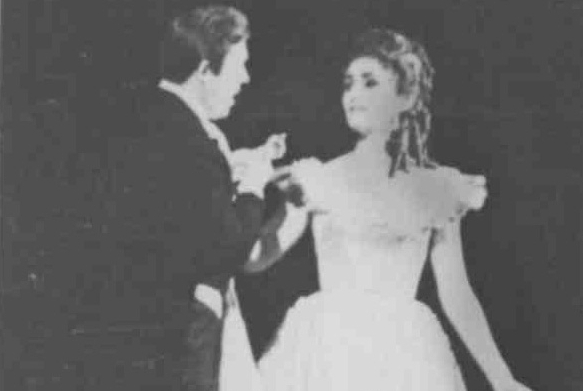
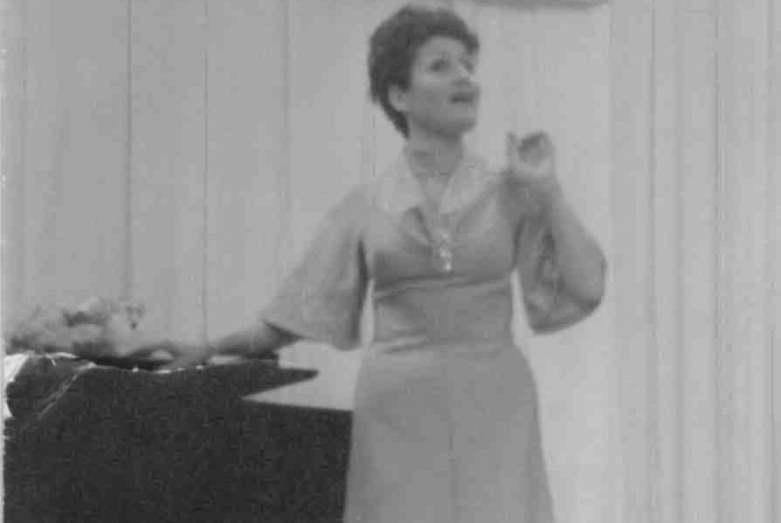
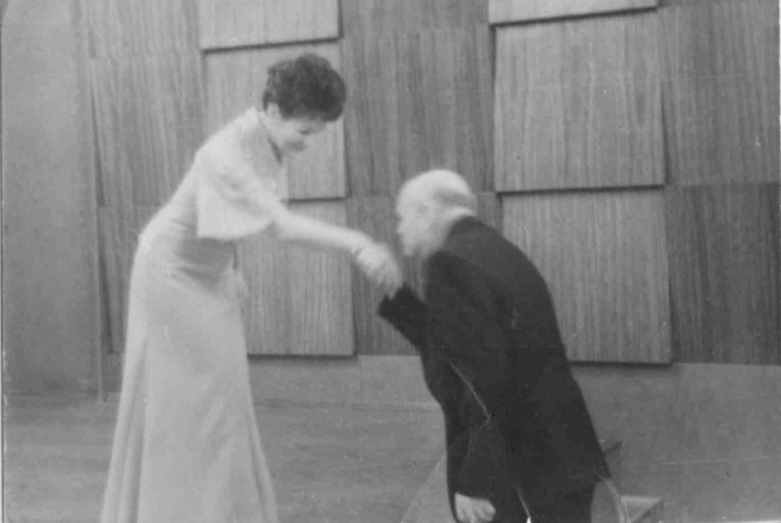
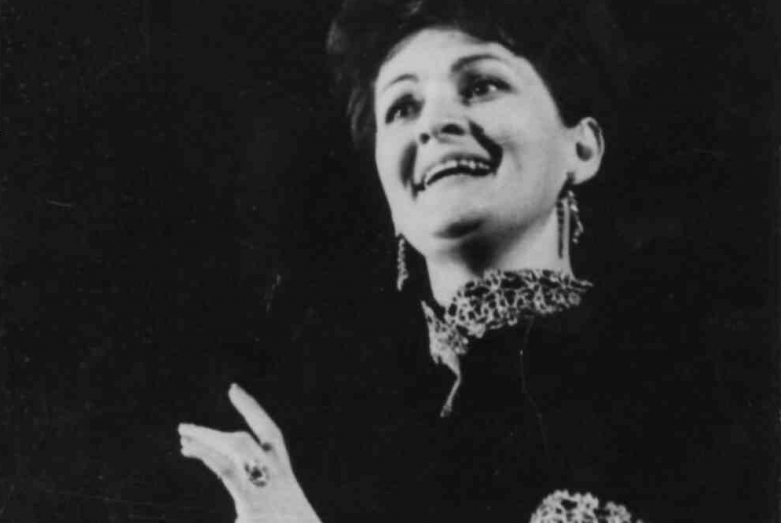
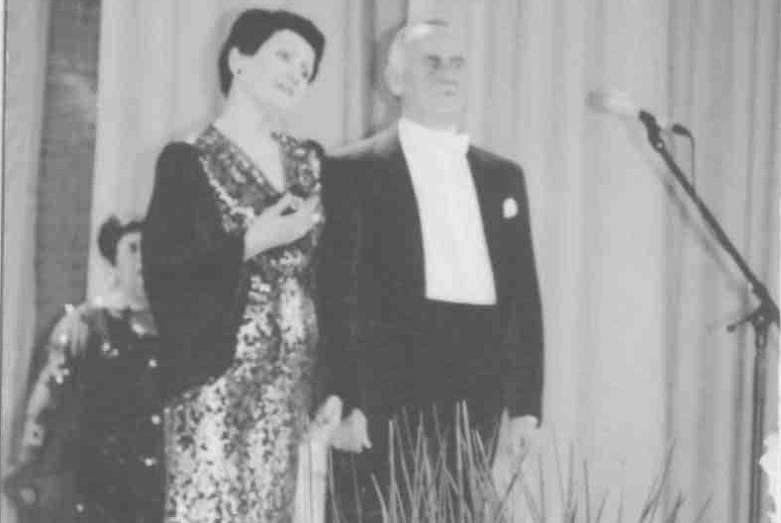
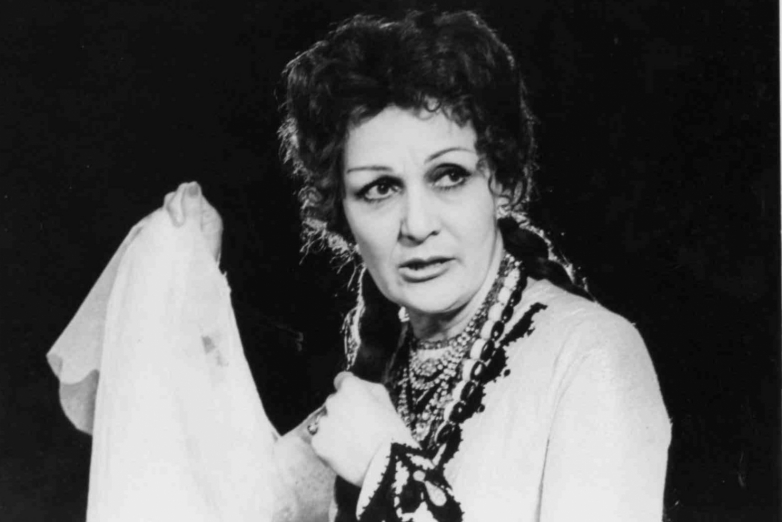
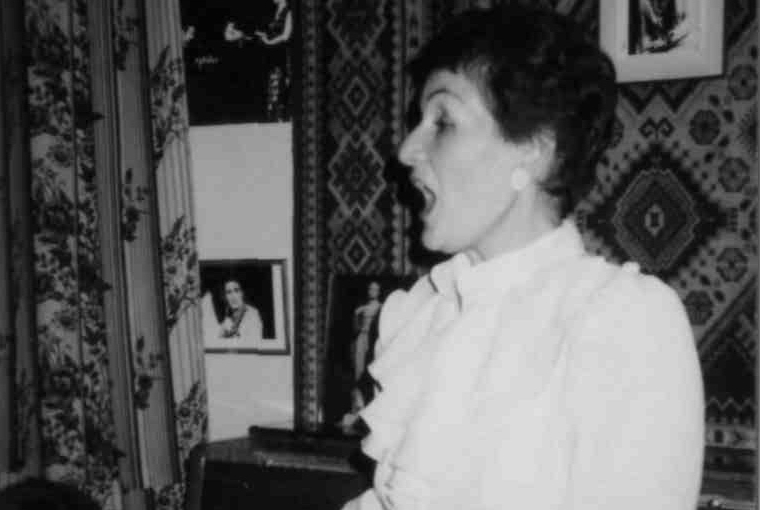
to login or register.